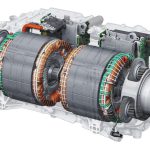Electrical engineers are the backbone of modern industry. From designing power systems to automating production lines, they ensure that electricity flows safely, efficiently, and reliably through every part of an industrial operation. 🔋⚙️
Whether you’re an engineering student, job aspirant, or company stakeholder, understanding the core responsibilities of an electrical engineer in an industrial setting will give you deep insights into how industries function smoothly and safely. 🚀📊
🧠 Who Is an Electrical Engineer? 📘
An electrical engineer is a professional who designs, develops, tests, and supervises the manufacturing and maintenance of electrical systems and equipment. In an industrial environment, their role is especially critical in areas like:
-
Power supply & distribution
-
Automation and control systems
-
Machine integration
-
Safety & compliance
-
Energy management
They bridge the gap between electrical theory and practical implementation. ⚡🔩
🧰 Core Roles of an Electrical Engineer in Industry 🔍
Let’s break down the main responsibilities electrical engineers handle in various industries:
🔌 1. Power System Design and Maintenance
Electrical engineers ensure that the entire facility receives consistent and safe electrical power.
Responsibilities include:
-
Designing electrical layouts and wiring diagrams 📊
-
Calculating load requirements and transformer sizing 🧮
-
Supervising the installation of power systems ⚒️
-
Ensuring proper grounding, earthing, and circuit protection 🌍
-
Regular maintenance of generators, UPS systems, and switchgear ⚙️
Goal: Keep all equipment powered up efficiently and safely!
⚙️ 2. Automation and Control Systems
Modern industries heavily rely on automation for speed, accuracy, and efficiency.
Responsibilities include:
-
Designing and programming PLC (Programmable Logic Controllers) systems 🖥️
-
Installing sensors, actuators, and control panels 🔁
-
Setting up SCADA (Supervisory Control and Data Acquisition) systems for monitoring 🧠
-
Troubleshooting issues in automated machinery 🛠️
Goal: Streamline operations and minimize manual intervention for higher productivity. 📈
💡 3. Electrical Equipment Installation and Integration
Every piece of industrial machinery needs correct electrical connection and calibration.
Responsibilities include:
-
Installing motors, drives (VFDs), and electrical panels 🔩
-
Integrating machines with the main power system 🧰
-
Reading and interpreting technical diagrams and manufacturer manuals 📘
-
Configuring energy-efficient systems and technologies 🌱
Goal: Enable machinery to operate correctly, safely, and efficiently.
🛑 4. Safety and Compliance
Safety is a top priority, especially in high-voltage environments.
Responsibilities include:
-
Ensuring all electrical systems comply with local and international standards ⚖️
-
Conducting risk assessments and implementing protection systems 🧯
-
Training personnel on safe electrical practices 👷
-
Performing regular audits and inspections 📋
Goal: Protect workers, equipment, and the environment from electrical hazards. 🚨
🧮 5. Testing, Troubleshooting, and Maintenance
Electrical engineers are problem-solvers when machines break down or when systems behave abnormally.
Responsibilities include:
-
Diagnosing faults using multimeters, oscilloscopes, and testing software 🔎
-
Performing routine and preventive maintenance 🧽
-
Documenting issues and repair logs 📄
-
Upgrading old systems to modern standards 🆕
Goal: Minimize downtime and ensure continuous operation. 🕒
🌐 6. Project Planning and Coordination
Large-scale installations or upgrades require proper planning.
Responsibilities include:
-
Estimating costs, manpower, and timelines 📅
-
Preparing project documentation and technical reports 📑
-
Coordinating with mechanical, civil, and automation teams 🤝
-
Overseeing vendor selection and material procurement 🛒
Goal: Execute electrical projects on time, within budget, and up to spec. ✅
📊 7. Energy Management and Optimization
Energy is both a cost and a resource. Engineers help reduce waste and enhance efficiency.
Responsibilities include:
-
Monitoring energy consumption and identifying inefficiencies 🔋
-
Installing energy meters and data loggers 📈
-
Implementing energy-saving techniques like LED lighting, automation, and smart controls 💡
-
Preparing sustainability and energy audit reports 📘
Goal: Reduce costs while supporting green and sustainable industrial practices. 🌱
🧑💼 Soft Skills and Competencies Required
Aside from technical skills, electrical engineers in industry need:
-
🔍 Analytical Thinking – For problem-solving and diagnostics
-
🗣️ Communication Skills – To coordinate with teams and vendors
-
🧠 Attention to Detail – Critical when dealing with complex wiring and circuits
-
👷 Leadership and Teamwork – Especially when supervising technicians or leading projects
-
🧮 Project Management Skills – For time and resource planning
🏭 Industries Where Electrical Engineers Play a Key Role
Electrical engineers are indispensable across numerous industries, such as:
-
🚘 Automobile Manufacturing
-
🏗️ Construction & Infrastructure
-
🧪 Chemical and Pharmaceutical Plants
-
⚙️ Heavy Machinery and Equipment Manufacturing
-
🧵 Textile & Food Processing
-
🛢️ Oil & Gas Refineries
-
📡 Telecommunications & Power Utilities
In every sector, they ensure machines talk, power flows, and safety is guaranteed. 🔋🌐
🚀 Future Trends Shaping Electrical Engineering
The industrial world is evolving, and so is the electrical engineer’s toolkit:
-
Industry 4.0 & IoT Integration 🌐
Engineers now integrate smart sensors, real-time data, and machine learning into traditional systems. -
Renewable Energy Integration ☀️⚡
Solar panels, wind turbines, and battery systems are being installed in industrial parks. -
Smart Grids and Automation 🧠🔌
Engineers help design intelligent power distribution systems for factories. -
AI in Fault Diagnosis 🤖
Predictive maintenance tools use AI to identify electrical faults before they occur.
🎯 Final Words: The Electrical Engineer’s Impact
Electrical engineers are more than just wire and circuit specialists — they are technology enablers in industry. Their work ensures that machines run smoothly, production stays on schedule, and workers stay safe.
Without electrical engineers, factories would stop, data would vanish, and machines would fall silent. ⚡🚫
So whether it’s powering an assembly line, building an energy-efficient system, or designing the control panel for a robot — the electrical engineer is at the heart of it all. ❤️⚙️


